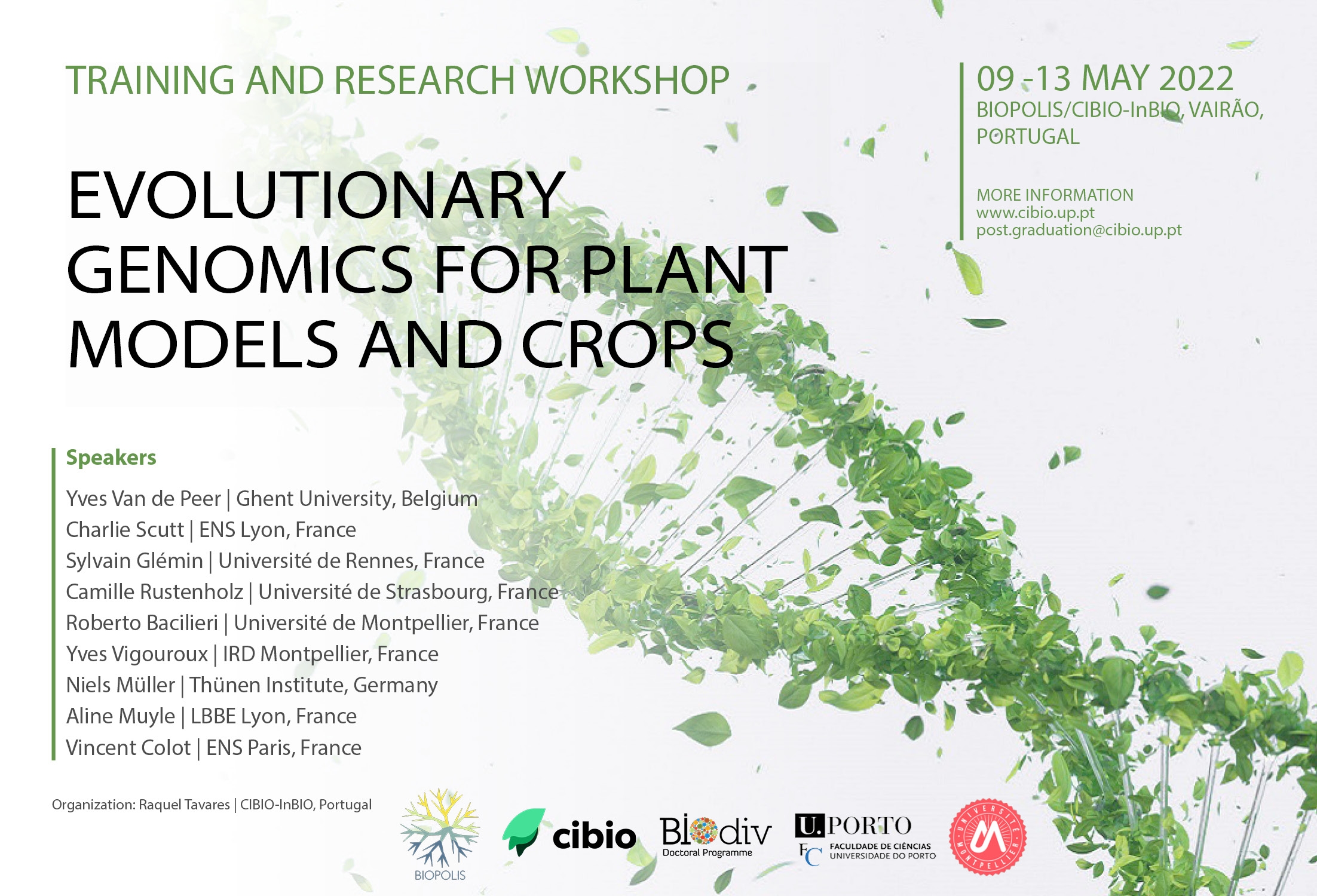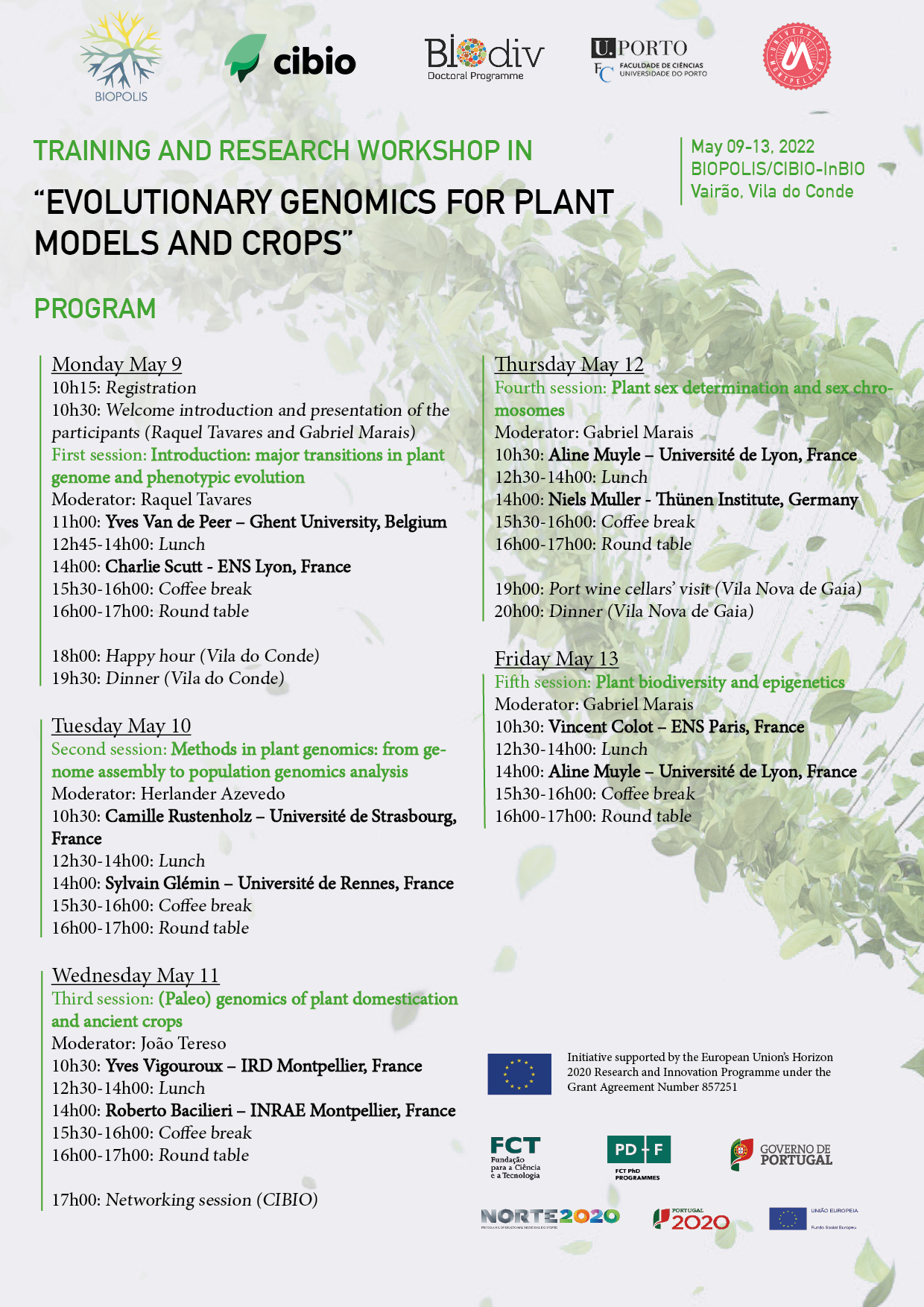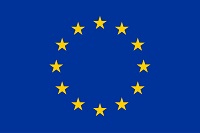Training and Research Workshop in "Evolutionary Genomics for Plant Models and Crops”
From 09 May 2022 until 13 May 2022 - BIOPOLIS/CIBIO-InBIO, Vairão, Portugal

This workshop will present major on-going research topics in plant evolutionary genomics, covering both methodological and biological questions, fundamental and applied perspectives, model plants and crops.
Each theme (day) will be covered by 2 talks given by international specialists and a round table with both speakers moderated by an in-house researcher from the field.
Talks will be 1h30 research-oriented lectures (with 30 min of a general/large scope introduction on the subject).
A lot of interaction is expected during these lectures: questions will be asked during the talks and at the round table.
The workshop is also meant to be a platform for connecting students and labs in this field, internationally.
PROGRAM

Registration deadline: March 31, 2022
PROGRAM

COURSE COORDINATOR
Raquel Tavares - BIOPOLIS/CIBIO-InBIO
COURSE INSTRUCTORS
Yves Van de Peer – Ghent University, Belgium
Charlie Scutt - ENS Lyon, France
Sylvain Glémin – Université de Rennes, France
Camille Rustenholz – Université de Strasbourg, France
Yves Vigouroux – IRD Montpellier, France
Roberto Bacilieri – Université de Montpellier, France
Niels Müller - Thünen Institute, Germany
Aline Muyle – LBBE Lyon, France
Vincent Colot – ENS Paris, France
SELECTION CRITERIA
60% of available student slots are reserved for BIODIV students.
Priority will be given to:
• 1st year and other PhD students attending the BIODIV Doctoral Program and from the University of Montpellier;
• PhD students attending other courses;
• Other post-graduate students and researchers.
REGISTRATION
95,00€ (Students) | 200,00€ (Other Participants)
Participation is free of charge for BIODIV and Univ. of Montpellier students
Participation is free of charge for BIODIV and Univ. of Montpellier students
Registration deadline: March 31, 2022
All applicants will be notified about whether they are accepted until April 6, 2022

Financed by:
 Initiative supported by the European Union’s Horizon 2020 Research and Innovation Programme under the Grant Agreement Number 857251
Initiative supported by the European Union’s Horizon 2020 Research and Innovation Programme under the Grant Agreement Number 857251


Financed by:
 Initiative supported by the European Union’s Horizon 2020 Research and Innovation Programme under the Grant Agreement Number 857251
Initiative supported by the European Union’s Horizon 2020 Research and Innovation Programme under the Grant Agreement Number 857251